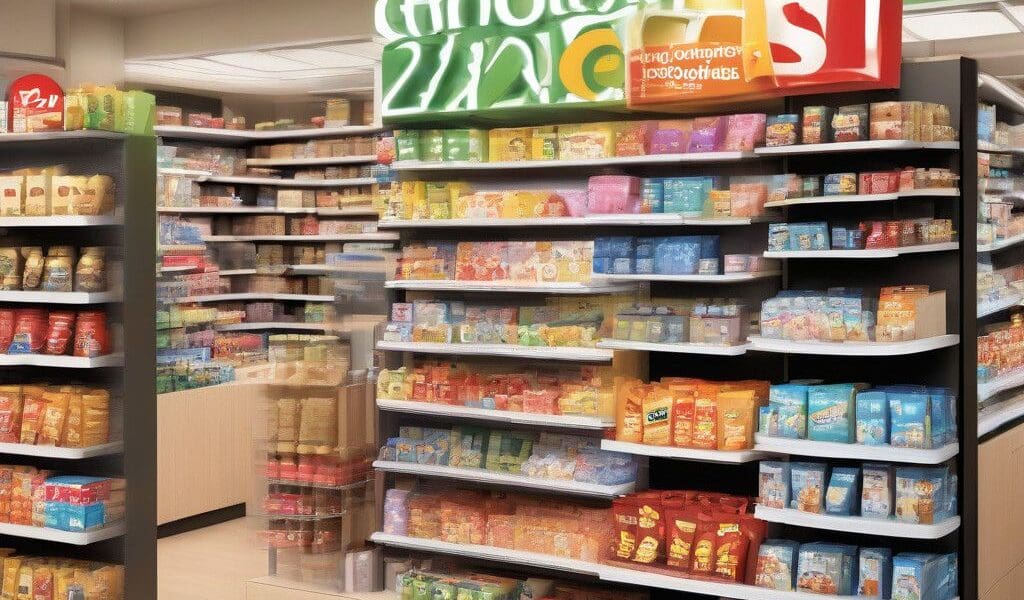In the fast-paced world of retail, convenience remains a top priority for consumers. However, as the retail landscape shifts towards more value-oriented shopping habits, convenience stores are finding new avenues for growth through private labels. This article explores the growing trend of store-brand products within convenience stores and how retailers are leveraging these offerings to enhance customer satisfaction and profitability.
Over the past few years, convenience stores have witnessed significant growth in the adoption of private label products. According to Chelsey Capps, director of thought leadership at Daymon, the convenience channel is seeing increased sales momentum, even amidst inflationary pressures. “While the channel is not immune to the pressures of inflation, we continue to see dollar and unit sales in convenience outpace the total market, especially grocery and drug,” she explains.
This movement toward private brands is not isolated to grocery chains; it extends to convenience stores that are increasingly focusing on their own-brand offerings across various product categories. The goal is clear: deliver quality products at competitive prices that provide a unique value proposition to shoppers. With quick-serve restaurants increasing prices, many consumers are actively seeking alternatives that deliver better overall value, which presents a prime opportunity for convenience stores to introduce private label products.
One major player in this field, 7-Eleven, is heavily investing in its private brand range through its 7-Select label. According to Nikki Boyers, VP of private brands for 7-Eleven, over 87% of U.S. consumers are choosing private label products. This statistic highlights the importance of store brands in meeting customer desires for quality and affordability. The 7-Select brand specifically aims to provide differentiated products in popular categories like water, sports drinks, teas, and snacks.
Observations from TXB, a Texas-based convenience store chain, also underscore the trend toward value-oriented shopping. TXB CEO Kevin Smartt reports that the retailer has expanded its private label range to meet increasing consumer demand for high-value offerings, particularly in the beverage sector. “There is definitely a trend more toward value shopping,” Smartt observes, emphasizing the importance of loyalty programs and promotional activities aimed at attracting cost-conscious consumers.
As consumer behaviors evolve, convenience stores are identifying new opportunities within their private label strategies. Recent analytics indicate that shoppers are seeking bold flavors, convenient packaging, and innovative product offerings. Capps remarks that retailers investing in private labels are adjusting their offerings to address shopper expectations for quality and value. A surge in demand for multipacks, for instance, reveals a significant shift in consumer purchasing behavior, further pushing convenience stores to innovate their product assortments.
Companies like 7-Eleven are not only focused on expanding existing product lines but are also keen on creating unique, high-quality items. By collaborating with manufacturers, they can bring first-to-market offerings to the shelves that stand out against national brands. An example is the new sparkling-water line launched in partnership with Miracle Seltzer, which showcases a variety of flavors like lemon-lime and green apple. This effort not only adds value to their private brand but also enhances the shopping experience through creative marketing techniques.
In an environment where shoppers have become more discerning, the strategy of building trust in private-label products cannot be overstated. As Smartt puts it, “From the beginning, we’ve taken the viewpoint that we want to create quality products for our private-brand assortment.” This commitment to quality builds consumer confidence and positions private label products as a legitimate alternative to national brands, thus allowing convenience stores to differentiate themselves in a competitive market.
The forecast for private-brand growth in the convenience sector remains optimistic. For 7-Eleven, plans are in place to introduce over 200 new private-brand items this year, entering new categories like frozen food and energy drinks while maintaining a focus on proprietary beverages and fresh food. This dedication to innovation is critical for maintaining relevance and attracting diverse customer segments within convenience stores.
In conclusion, as convenience stores continue to adapt to changing consumer preferences, the emphasis on private brands becomes vital. Retailers must focus on providing quality products that align with affordability and innovation. By doing so, convenience stores can easily differentiate themselves from competitors while strategically meeting the needs of their valued customers.












